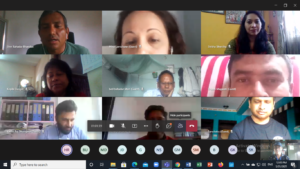
Development Exchange Center-Nepal (DEC-Nepal) has been consistently engaged in the issue of equitable distribution of power and resource for rural to national development since it’s established in 2002. DEC-Nepal took initiatives with internal and external resources for the empowerment of women, indigenous peoples, youth, and marginalized communities of previously defined Central Development Regions. DEC Nepal believes that sustainable development of deprived community is a centered socioeconomic intervention with multi-stakeholders approach ensuring environment conservation, gender mainstreaming, and social cohesion at a local level.
The organization has been successful in strengthening active citizens’ engagement in public service oversight and promoting gender responsive local governance. It has been possible with support received from Civil Society: Mutual Accountability Project in coordination of technical guidance and supported of FHI 360 and financial supported by the United States Agency International Development (USAID).
Since, this is the time for local planning process and technique from ward to municipalities’ level for the fiscal year 2077-2078. Considering such pandemic and lock-down faced by the citizen, DEC-Nepal has taken a golden opportunity to organize virtual training to participation of civil society, differently abled people, representative of local government, deputy mayor and other social structure to discuss their critical engagement and opinion for the upcoming FY’2078 planning process and technique as well as budget of the development of economic, social, infrastructure, DRR, forest and environment, governance and institutional development. Thus, orientation on public service entitlements and local planning process to Constitutional Assembly members of working districts of CS:MAP Project (Dhading and Makwanpur) was held using the online platform (Microsoft team) on 31 May 2021 at Nilkantha Municipality of Dhading.
